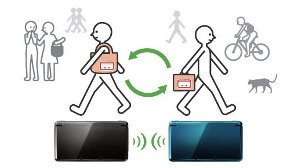3DS system update will make StreetPassing easier
Wi-Fi points to become StreetPass "relay stations"

StreetPass is great in Japan, where population density and 3DS ownership make for frequent exchanges. It's not so great in the Americas and Europe, where players may feel lucky to see their 3DS' little green LED light up weekly rather than monthly or yearly.
Nintendo has a plan to change that. It involves Starbucks and McDonald's.
"Previously the StreetPass feature required multiple Nintendo 3DS systems in Sleep Mode to be in the same location at the same time, but in this framework, you can exchange data with others by visiting the same location even at a different time, so we can certainly expect the use rate of the StreetPass feature to grow significantly," Nintendo CEO Satoru Iwata explained in a presentation to analysts this week.
3DS systems connect automatically to 28,000 Wi-Fi access points provided by Starbucks, McDonald's, and others in the U.S., and 24,000 points in Europe. A system update planned to drop by autumn will use these points as "relay stations": when your 3DS connects to one, it will check in with a server and log your presence. When someone else connects to the same point later, the server sets up a StreetPass as if you were there at the same time.
It sounds kind of like an Orwellian database of user check-in locations and times, but hey, at least it means more Puzzle Swap tiles, right?
Sign up to the GamesRadar+ Newsletter
Weekly digests, tales from the communities you love, and more
I got a BA in journalism from Central Michigan University - though the best education I received there was from CM Life, its student-run newspaper. Long before that, I started pursuing my degree in video games by bugging my older brother to let me play Zelda on the Super Nintendo. I've previously been a news intern for GameSpot, a news writer for CVG, and now I'm a staff writer here at GamesRadar.



